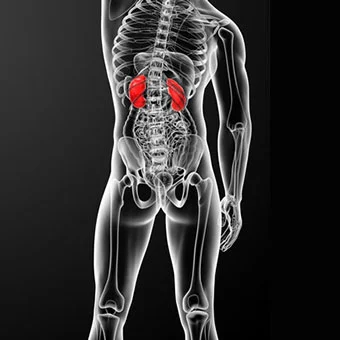Know About Kidney Disease
Kidney failure is a marked decrease in the kidney’s ability to filter and remove waste products and maintain electrolyte balance. An increase in the amount of creatinine and blood urea nitrogen in the blood implies kidney failure.
In general, the kidney is the size of a computer mouse. It filters the blood of our body every 30 minutes. Talking about the main function of kidney in our body, it works hard to remove wastes, toxins and excess fluid. It also helps regulate blood pressure, stimulate the production of red blood cells, keep our bones healthy, and regulate blood chemicals necessary for life. Keeping the kidneys functioning properly is important for maintaining good health.
Nowadays the number of kidney patients is increasing rapidly due to wrong eating habits. Kidney diseases occur when the kidney is damaged or there is a problem with its function. Kidney damage is usually due to diabetes, high blood pressure or any other chronic disease. If there is kidney disease, its effect can also affect other organs of the patient, such as nerve damage, bone weakness, malnutrition etc. If kidney diseases are not treated at the right time, then the kidneys become completely damaged and stop working.
Acute Kidney Disease
Acute kidney problems are sudden kidney problems. For example, due to any drug, infection or radioactive dye, there is a problem in any tissue of the kidney, due to some reason the kidney is not able to pass urine, etc. In some people, such a problem gets cured after a little drug-treatment, while in some people; this problem takes the form of chronic kidney disease after a long time. These problems are not serious in most cases and after treatment, the kidneys start working properly.
Chronic Kidney Disease
The most common kidney disease is chronic kidney disease, in which the kidneys become damaged. This disease is usually caused by high blood pressure. Due to blood pressure, there is pressure on the fine cells that filter the blood present in the kidney, due to which there is trouble in kidney function. Because of this, excess fluid and waste from the blood stays in the body and can lead to other health problems, such as heart disease and stroke.
Some other health consequences of CKD include:
- Anemia or low number of red blood cells
- Increasing cases of infection
- Low calcium levels, high potassium levels, and high phosphorus levels in the blood
- Loss of appetite or eating less
- Depression or low quality of life
Polycystic Kidney Disease
Polycystic kidney disease is also a serious kidney problem. In this disease a large number of cysts (water-filled bubbles) are formed in one kidney or both the kidneys. Over time, these cysts grow, due to which the size of the kidney increases and it becomes difficult to function. Sometimes this disease can also cause high blood pressure. Polycystic kidney disease can also lead to chronic kidney failure in the patient. This is a genetic disease, so this disease can also come from the parents to the child.
Nephrotic Syndrome
Nephrotic Syndrome is more common in children than in other ages. Usually, this syndrome causes frequent swelling in the body. In this disease, there is protein in the urine, low protein in the blood test report and increase in cholesterol. In this disease, the blood pressure does not increase and the chances of kidney damage are very less.

